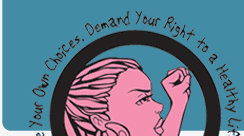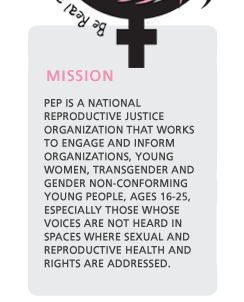Election 2008 was an electrifying time for all of us. All around me I saw people who were never interested in politics or the election process before becoming excited at the prospect of having a female or a person of color as President. I remember initially feeling excited about both Hillary Clinton and Barack Obama. The first presidential administration I remembered growing up under was the Clinton administration, so I was more familiar with Hillary. However, I kept hearing many people comment on Obama and how electrifying his speeches were, especially his speech on race in America. I remember being excited that this country could one day have a female president or a person of color as the president, and I also remember having conversations with many people on who I would vote for in the primaries and ultimately the election. I initially remembered being fine with whomever would win the Democratic nomination, but I also had this feeling of needing to choose one side over the other. I would hear comments like This country is not ready to have a black president or A woman is too emotional to ever become president. I had female friends who assumed that I would vote for Hillary. And I had just as many black friends and relatives who told me to "vote the way you're supposed to." It got me to thinking, which should be more important: my race or my gender?
I remember watching a television news show during the Democratic primaries. A reporter was interviewing a group of women representing different racial, economic, and social backgrounds. There was one African American woman that I can remember, and the reporter asked her if she felt more identified with her gender or with her race. While I don't remember her answer, this question made me think back several months ago while sitting in a workshop during my graduate school orientation. The facilitator asked the group to list aspects of ourselves that we would consider to be primary or secondary. The facilitator described that a primary aspect would be an aspect that is considered dominant in the American culture, such as being able-bodied, male, or heterosexual. A secondary aspect would be the opposite, such as disabled, female, or homosexual. We broke up into pairs with the plan to come together and have a larger discussion. My partner and I, while aware of the directions that were given to us, both felt that what the American culture would consider primary, we would actually consider secondary. In our minds, we felt that what stood out to people about us the most would be what we would consider to be our primary aspects. I am African American and a woman, and I've always felt that these parts of me were more dominant because I know that when I walk into a room, people notice these aspects about me before they would notice anything else. My question now would be which would be more important to me during this election season?
I remember the day after the final Democratic primary, a reporter from CNN asked individuals in an airport if they were content with the outcome of the primaries. I noticed that the people who were mostly excited about Obama's win were black. In fact, one woman who was Caucasian shook her head in disgust and said "I think this country is more ready for a woman as president than a�.black man". When asked to elaborate, she quickly walked off. One thing that amazed me was many women, in response to Oprah Winfrey's endorsement of Obama, commented in online forums that they would boycott The Oprah Show because Oprah had endorsed a man over a woman. Their feelings did not surprise me, but I couldn't help but notice that they continued to mention Obama's race. It may have been unintentional, but it bothered me. Another thing that bothered me occurred during the Summer Convening that the Young Women's Leadership Council attended in New Orleans. While souvenir shopping, some council members and I noticed a t-shirt with a caption that read, "Bros before Hoes", with the faces of Obama and Hillary smiling broadly on the front. I was very offended, and I've often heard black men and women saying this phrase during the election season.
In conversations I've had with some of my black female friends during the primaries, one friend asked, "Since when have black women ever been able to trust white women to represent their interests?" This question struck me. There has been a long history of women of color not being included enough in the Feminist movement, whether unintentionally or not. In fact, many women of color do not describe themselves as being feminists. Instead, women of color (primarily black women) call themselves womanists, a term coined by author Alice Walker in her book In Search of Our Mothers' Gardens: Womanist Prose as a way for black women to identify themselves as feminists without connecting themselves to the racism many had experienced during the feminist movement. Even before the feminist movement, there was slavery. These conversations led me to wonder if many black women or women of color in general felt the same way. I know that looks can be deceiving. Just because someone is of my race does not mean that they have my best interests in mind, and the same can be said of being of the same gender. We all do not have similar experiences, and I feel that at times we seldom remember this. I knew many women who were wary of Hillary as well as many black people who were wary of Obama. While the choice was clear to me, I knew of many women, regardless of color, who were torn up about who to vote for during the primaries.
Race and gender can be delicate topics. While this was a very exciting time for this country, I believe that it brought out a lot of ill feelings in many. I remember reading countless articles and message board discussions of people who were planning to vote for John McCain because they were upset that Hillary did not receive the Democratic nomination, and these individuals were also tempted by the fact that he had a female vice-presidential running mate. At the same time, I also knew of many individuals who planned to vote for McCain if Obama received the nomination. While I was excited for this country, I couldn't help but feel disappointed to hear people make sexist or racist comments. Even some of my "friends" on Facebook would write hateful status messages describing their disgust for one candidate over the other.
I believe this election has brought out a lot within us, and it has brought sexism and racism (and even ageism) to the forefront. While the conversations can be uncomfortable at times, I feel that they'll always be needed until the day we are able to say that racism and sexism no longer exist in this country and globally. Do I believe racism and sexism will cease one day? In a perfect world, it would be nice. It would be great to live in a world where gender and race did not matter, and that what did matter is a person's character.
Regardless of who you voted for (if you are of legal voting age), I hope that you are happy with the outcome. I also hope that this election has inspired many young girls and children of color that they can be anything they want to be and that nothing will be able to stop them. Now it's time for me to plan my trip to the Inauguration.
| 





